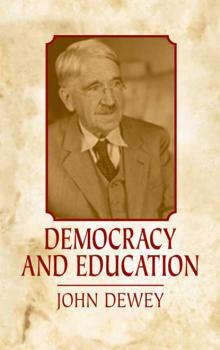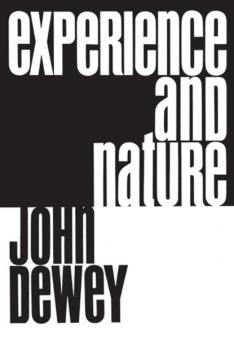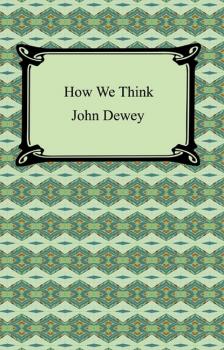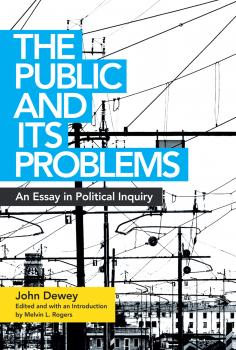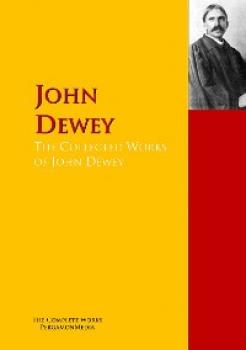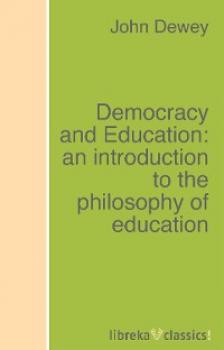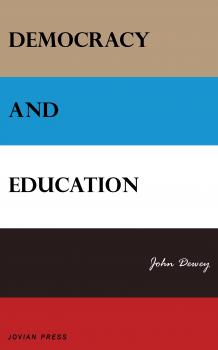ТОП просматриваемых книг сайта:
Джон Дьюи
Список книг автора Джон ДьюиАннотация
Psychology, epistemology, ethics, and politics are among the subjects on which John Dewey focused his authorial talents — but the crux of his works lies in his philosophy of education. Democracy and Education, originally published in 1916, is his landmark work in the field and an ongoing source of influence and inspiration.Dewey blends his philosophical pragmatism and his progressive pedagogical ideas to define the social role of education and its significance as preparation for citizenship in a progressive democratic society. He stresses democracy's associational and communal aspects, maintaining that conscious, directed education is necessary to establish these conditions and to cultivate democratic character in students. Growth, experience, and activity are the factors Dewey employs to characterize the connection between learning and the variety of social, communicative activity that fosters a thriving democratic community.As a conclusion, the author addresses the social barriers that inhibit democratic education. These divisions, he finds, derive from the practice of dichotomizing relationships between the mind and body, the mind and nature, and the individual and society. Dewey promotes a philosophy of education that negates these dualisms and focuses on freedom of the mind through directed social activity.
Аннотация
This is an enlarged, revised edition of the Paul Carus lecturers which John Dewey delivered in 1925. It covers Dewey's basic formulation of the problem of knowledge, with both a full discussion of theories and resolutions propounded by other systems, and a detailing of Dewey's own concepts upon the relationship of the external world, the minds, and knowledge.Starting with a thorough examination of philosophical method, Dewey examines the interrelationship of experience and nature, and upon the basis of empirical naturalism analyzes experience, the formulation of law, the role of language and social factors in knowledge, the nature of mind, and the final interrelation of mind and matter. Dewey, as in his other mature philosophy, attempts to replace the traditional separation of nature and experience with the idea of continuity, using the traditional separation of nature and experience with the idea of continuity, using the concept of language as the bridge.Dewey's treatment of central problems in philosophy and philosophy of science is profound, yet extremely easy to follow. His range of subject matter is very wide, from the anthropology of Malinowski to gravity, evolution, and the role of art, and his insights are clear and valuable. Scientists, philosophers of science, philosophers, and students of American history of thought will all find this one of the most profitable works by a great 20th-century thinker.
Аннотация
One of America’s foremost philosophers, John Dewey (1859-1952) fought for civil and academic freedom, founded the Progressive School movement, and steadfastly promoted a scientific approach to intellectual development.In How We Think, Dewey shares his views on the educator’s role in training students to think well. Basing his assertions on the belief that knowledge is strictly relative to human interaction with the world, he considers the need for thought training, its use of natural resources, and its place in school conditions; inductive and deductive reasoning, interpreting facts, and concrete and abstract thinking; the functions of activity, language, and observation in thought training; and many other subjects.John Dewey’s influence on American education and philosophy is incalculable. This volume, as fresh and inspirational today as it was upon its initial publication a century ago, is essential for anyone active in the field of teaching or about to embark on a career in education.
Аннотация
"How We Think" is John Dewey's exposition on the nature of human thinking. Illustrated through numerous everyday examples, Dewey details the varying processes by which one might engage in the critical thinking process. With the aim of making students better at the methods of thought and thus better students, «How We Think» is an essential read for both students and teachers alike.
Аннотация
More than six decades after John Dewey’s death, his political philosophy is undergoing a revival. With renewed interest in pragmatism and its implications for democracy in an age of mass communication, bureaucracy, and ever-increasing social complexities, Dewey’s The Public and Its Problems, first published in 1927, remains vital to any discussion of today’s political issues. This edition of The Public and Its Problems, meticulously annotated and interpreted with fresh insight by Melvin L. Rogers, radically updates the previous version published by Swallow Press. Rogers’s introduction locates Dewey’s work within its philosophical and historical context and explains its key ideas for a contemporary readership. Biographical information and a detailed bibliography round out this definitive edition, which will be essential to students and scholars both.
Аннотация
This comprehensive eBook presents the complete works or all the significant works – the Œuvre – of this famous and brilliant writer in one ebook – 5870 pages easy-to-read and easy-to-navigate: • Democracy and Education: An Introduction to the Philosophy of Education • How We Think • Moral Principles in Education • The Child and the Curriculum • Human Nature and Conduct • Creative Intelligence: Essays in the Pragmatic Attitude, James Hayden Tufts, Addison Webster Moore, Harold Chapman Brown, George H. Mead, Boyd Henry Bode, Henry Waldgrave Stuart, and Horace Meyer Kallen • Reconstruction in Philosophy • Leibniz's New Essays Concerning the Human Understanding • Ethics and James Hayden Tufts • Psychology and Social Practice • Studies in Logical Theory • Letters from China and Japan and Harriet Alice Chipman Dewey • Essays in Experimental Logic • German philosophy and politics • China, Japan and the U.S.A. • etc.
Аннотация
Democracy and Education: an introduction to the philosophy of education by John Dewey libreka classics – These are classics of literary history, reissued and made available to a wide audience. Immerse yourself in well-known and popular titles!
Аннотация
Американский философ, психолог и педагог Д.Дьюи – один из самых выдающихся и влиятельных мыслителей ХХ века.
Благодаря Дьюи, во многих странах мира кардинально изменился подход к методам обучения. В своей экспериментальной школе Дьюи сумел осуществить свою идею «обучения деланием», когда дети не только приобретали знания, но и учились их использовать, т. е. по-настоящему жили, а не только готовились к взрослой жизни.
Так называемый «метод проектов» и «продуктивное обучение», более детально разработанные впоследствии его учениками, способствуют развитию и саморегуляции личности, учат ориентироваться в культуре и взаимодействовать с другими людьми.
Чтение произведений Дьюи – нелегкий труд. Но вдумчивый и терпеливый читатель будет вознагражден. Дьюи чрезвычайно подробно рассматривает проблемы демократизации образования, просеивая их через сито своего скрупулезного анализа, вскрывает подводные камни психологии человека, приводящие его к ложному пониманию тех или иных явлений жизни, учит читателей находить рациональные зерна в противоречивых суждениях.

